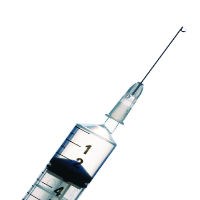NICE to recommend new drug to treat rare inherited bone disorder in children
22 Sep 2016 04:15 PM
NICE recommends ‘lifeline’ drug for babies and young children, in draft guidance.

NICE has published draft guidance recommending the drug asfotase alfa for children with perinatal- and infantile-onset hypophosphatasia – a very rare inherited condition affecting between one and seven babies each year in England.
Described as a ‘step-change’ in the management of the condition, offering a ‘lifeline’ for people that could enable them to have a good quality of life but without which they would not survive, the £367,000 per patient per year drug is the first therapy thatspecifically targets the underlying cause of hypophosphatasia.
The draft guidance recommends asfotase alfa for children with the condition as part of a managed access agreement and when the company provides the drug with the proposed cost cap which will limit the cost the NHS will have to pay per patient.
The five-year period of the agreement will allow more information to be gathered on how long treatment should continue, and when treatment could be stopped or the dose reduced before the guidance is reviewed and a further decision made on whether funding should be continued.
The draft guidance also states that the company should provide further opportunities to reduce the short-term cost of asfotase alfa to the NHS.
Professor Carole Longson MBE, NICE health technology evaluation centre director, said: “Paediatric-onset hypophosphatasia is a serious, life-threatening and debilitating condition that has severe effects on the lives of people with the condition, as well as their families and carers.
“Based on the evidence presented by the company, as well as the testimony of clinical experts and patient representatives, the committee concluded that asfotase alfa improved the probability of survival in perinatal- and infantile-onset hypophosphatasia compared with best supportive care.
“The committee also accepted that asfotase alfa was likely to be clinically effective across a range of outcomes, such as reducing the need for respiratory support and the severity of rickets for people with perinatal- and infantile-onset hypophosphatasia.”
Hypophosphatasia disrupts the process in which minerals such as calcium and phosphorus are deposited in developing bones. Infants with perinatal- and infantile-onset hypophosphatasia have a high mortality rate, with up to 100% dying within the first year of life, mainly because of respiratory failure.
Asfotase alfa provides long term enzyme replacement therapy to restore the regulation of metabolic processes in the bones and teeth, and to reduce complications of dysregulated bone mineral metabolism
Asfotase alfa has been considered as part of NICE’s Highly Specialised Technologies programme that looks at treatments for very rare diseases that are commissioned nationally by NHS England.
The draft guidance does not recommend the drug for people with hypophosphatasia that appears later in childhood or in adults. This was because the committee felt that the treatment need for these people varied, and the criteria for starting and stopping treatment with asfotase alfa in the managed access agreement did not identify those who would benefit the most within this group.
Public consultation on the draft recommendations is open until 5pm on 13 October 2016.